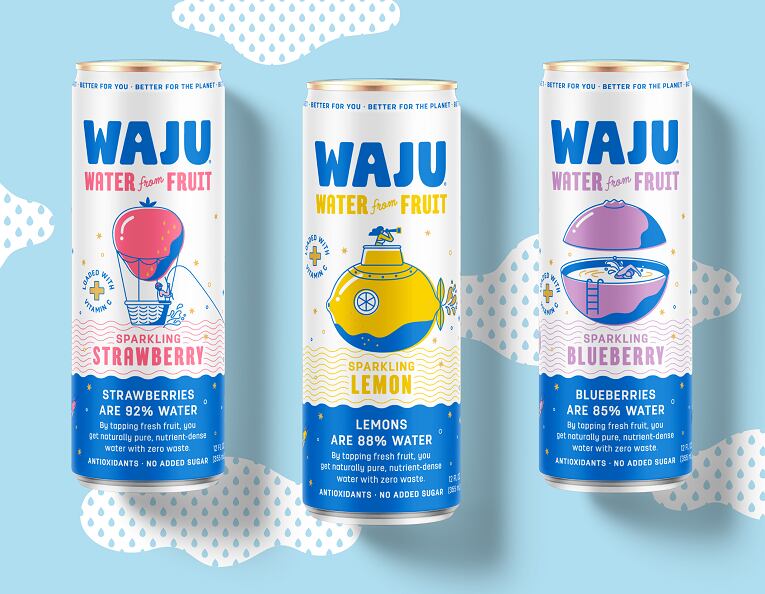The idea for getting water out of fruit came after Oates read an article about how “you can eat your water” with fruits and vegetables that retain a lot of water. However, the downside of eating your way to hydration is “the glucose spike,” Oates explained.
“If fruit is mostly water — like 90% water — what if there was a way where I could extract that refreshing water and the goodness of fruit but leave behind the sugar,” Oates said. “That was the genesis of the idea.”
Partnering with fruit concentrate suppliers

Oates started calling fruit concentrate suppliers and asked them about their processes, including how they reduced the water out of the juice "to retain the syrupy concentrate, which goes on to be reconstituted juice drinks." Most suppliers admitted that the excess water from the concentrating process would go unused and ultimately may be released back into the environment, which “can lead to soil erosion [and] oxygen loss in the waters," he added.
By partnering with these suppliers, Waju can “collect and upcycle that water” and then purify it with proprietary technology and “transform that into the beverage,” Oates said. This water is featured in all of Waju's flavors, including Lemon Odyssey, Strawberry Voyage, and Blueberry Escape.
The diversity gap in food and beverage leadership
As Oates readies his brand for day one on retail shelves, he also took the opportunity to reflect on what it means to lead a startup and the challenges facing BIPOC-owned food and beverage companies.
“[The] three biggest stresses in growing a business, especially coming at it from a Black-owned company lens or BIPOC lens, it's ... getting the access to capital; it's plugging into the network … and then just that credibility.”
When it comes to credibility, Oates has about eight years of working with PepsiCo, which gives him credit in the space, but “you really have to establish that upfront," he said.
Though diversity in CPG is improving in the natural world with programs like (included) CPG group and more investors looking for diverse brands, “there's a disconnect as far as who the audience is, who they're serving, and the representation within leadership positions in some of these companies,” Oates said. “Looking at some of the demographics of the natural products industry, something like 2% of leadership positions are held by Black people,” he added.
The lack of diversity not only hurts the food and beverage industry, but it also impacts the end consumer, as “diversity breeds innovation,” Oates said. Diversity in leadership ultimately translates to diverse products that “solve some sort of new need that you have and makes your life easier, makes your life happier, [and] brings more joy to you," he added.
2023 goals: Raising capital, getting the word out
When it comes to Waju's funding, Oates noted that it was “bootstrapped plus,” having received some grant funding and winning an award in 2022 from the Black Ambition project, a non-profit organization created by singer, record producer Pharrell aimed at closing the opportunity and wealth gap by investing in Black and Latinx HBCU students and entrepreneurs. But as he looks to build out Waju, Oates is investigating how to raise money, despite the current investing climate.
"The beverage industry is capital intensive, so you need deep pockets, and you need deep pockets to grow. And a lot of times, it's about volume and scale."
In the future, Oates says he hopes to have a round of seed funding to help scale his business. Not only does a seed round “spread the risk,” but it also provides "that strategic leadership from accomplished investors,” Oates said.
Oates also plans to do more in-store sampling and promotions in 2023 to get the word out more about his brand. While the Black Ambition project generated some buzz, Waju has been a bit in “stealth mode,” he said. And part of getting out more is telling Waju’s story and creating “some awareness, and to inspire other innovative solutions, to address water scarcity.”


